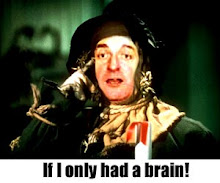 Don't forget your red flag! - Novecento
Don't forget your red flag! - NovecentoWith cinematography by the legendary Vittorio Storaro, Bernardo Bertolucci's '
1900' (aka Novecento, 1976) features some of the most beautiful images ever committed to celluloid. Bertolucci being Bertolucci, the direction is often pretty wonderful too. To continue the credits, the cast includes De Niro, Depardieu, Sutherland, Lancaster, Sterling Hayden(!!!!), and even Italy's first lady of film, Alida Valli. Music is by Ennio Morricone (well, it had to be really, hadn't it?). So why is five hours of socialist propaganda so uninvolving? The clue might be in the question.
I make no secret of my political leanings, but there is only so much Internationale one can take, and in such an uncritical manner. Even Beatty's 'Reds' showed more critical engagement than this. Telling in rural microcosm, the history of Italy in the first half of the Twentieth Century, things seem to go downhill when the Fascists make their appearance, and I don't just mean for Italy. I understand that the some Fascists were sociopathic, or certainly can be handily treated that way, but Donald Sutherland's character, Attilla, the local Blackshirt leader, and his partner, Regina (Laura Betti), seem straight out of a particularly nasty Brothers Grimm tale. It doesn't help that Sutherland is all sneers and googly eyes, but smashing a kid's head against a wall (after raping him) while being cheered on by Regina is just a step too far for me. Meanwhile the opposition to the Blackshirts is so omnipresent, and just so plain nice, as to make you wonder who the hell supported Mussolini in the first place. The Fascists were voted in, you know, whatever about their regime becoming a dictatorship. Instead the film makes the easy case that the Patrones, or landowners, were the real cause, or prop for the Fascists, and it was their patronage that almost exclusively made Mussolini possible. I don't buy that. And I didn't buy the film overall.
As an Italian, Bertolucci no doubt felt the need to exonerate his countrymen, but I have no such simple faith in human kind, or need to excuse. All races and nationalities, all people are capable of horrendous things (including the Irish as we well know). And no people are simply right or left, good or bad, regardless of how the early Twentieth Century polarised them. A film of over five hours should allow for some of this complexity. '1900' didn't.
Ironically the ultimate message that the Patrone didn't and won't die is the truest point the film makes, though one the movie makes no real attempt to explain. It's just given as a sad fact. It left me sad, but hardly energised. A pity.
Labels: Film

 Don't forget your red flag! - Novecento
Don't forget your red flag! - Novecento
